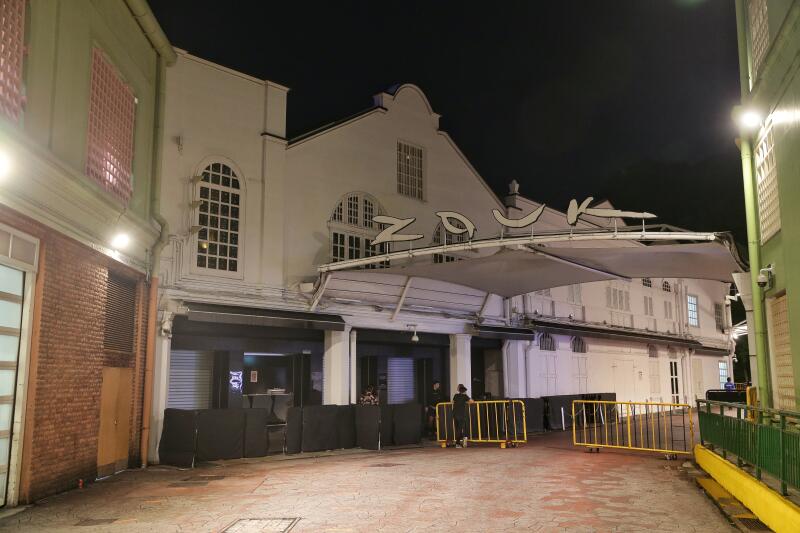SINGAPORE - Within three months of opening, business was booming for escape room company Amazing Chambers Singapura, which sits atop TripAdvisor's list of fun and games in Singapore.
But just as director Hendra Harjuna was considering drawing a salary in January, the coronavirus hit. Tourists and school and corporate groups - which form about 85 per cent of customers - no longer showed up.
Now forced to close until at least the end of April along with sister business Trapped, Mr Harjuna says they will not be able to reopen if landlords do not offer rental waivers for the period of closure.
Along with other entertainment businesses facing zero income, they are dipping into their reserves to keep staff on payroll during the shutdown.
Bars and entertainment venues, including cinemas, nightclubs and karaoke outlets, were ordered to suspend operations starting last Friday (March 27) as part of a series of strict new rules to limit crowds and minimise the risk of further spreading the virus.
Some of those venues say they feel left out of the second wave of support for businesses announced last week by Deputy Prime Minister Heng Swee Keat as they do not qualify for the higher wage subsidies offered to the tourism and food services sectors.
The Government will offset 25 per cent of the first $4,600 of wages for local workers for nine months this year under the Jobs Support Scheme.
A higher support of 50 per cent will be given to those in food services and 75 per cent to those in aviation and tourism, the sectors hardest hit by the outbreak.
But while bars are considered part of the food services sector and hence qualify for 50 per cent wage subsidies, entertainment operators will be entitled to only 25 per cent.
Without any revenue, layoffs and permanent closures are imminent, firms said.
Mr Harjuna said Amazing Chambers is appealing to the Singapore Tourism Board (STB) to cover it under the tourism sector as its rooms are centred around local history and travellers make up a substantial proportion of its customers.
He has also written to both landlords to ask for full rental waivers for April and May and is awaiting their reply. Amazing Chambers is housed in a heritage building in Kampong Glam, managed by the Malay Heritage Foundation, while Trapped has a unit in *Scape on Orchard Road.
"Right now we cannot cover rental, we can barely afford to pay expenses and salaries. On average, an SME (small and medium-sized enterprise) has about three months worth of working capital as cushion and we have not been accumulating profits for the last three months.
"About $500,000 was invested to open Amazing Chambers and it would be a shame to close, but if we don't get a lifeline, we will have to fold", he said.
Axe-throwing range Axe Factor closed only on Monday (March 30), after being informed by police on the same day that it was considered an entertainment venue.
Both police and the Singapore Food Agency clarified on Tuesday (March 31) that operators holding public entertainment licences must suspend operations. Attractions such as museums and theme parks may remain open as long as they adhere to safe distancing rules.
Axe Factor founder Samuel Tey said that his landlord at The Grandstand, Cogent Land Capital, has not announced any rental rebates since the outbreak began.
"Not only are we not getting help, but they are still chasing for rental, almost daily," said Mr Tey.
But not all commercial landlords are holding back on rent relief.
Arcade chain Cow Play Cow Moo, which has five outlets at malls, including Suntec City and Tampines Mall, has been given rental waivers for the closure period, a spokesman said.
Despite receiving only 25 per cent wage subsidies, the company will continue paying its 50 staff full salaries next month, it said.
ZOUK FACING LAYOFFS

Nightclub operators, which employ more staff, have been hit particularly hard by the order to close.
Zouk Group's chief executive, Mr Andrew Li, told The Straits Times that without more wage support, the firm may have to begin retrenchments as soon as this week.
About 70 per cent of its 200 staff are Singaporean, and having wage subsidies on a par with the tourism industry would enable it to retain most of them, he said.
The group also runs the local franchise of American burger chain Five Guys, located at Plaza Singapura. Its landlord at both premises, CapitaLand, has pledged to suspend the rents of tenants that have been ordered to close.
Mr Li said he was surprised that Zouk was not considered part of the tourism sector, since it is overseen by the STB and is often used in overseas marketing efforts. About 30 per cent of visitors to Zouk are tourists.
Revenue for the club fell by between 30 and 40 per cent in February. It dropped by up to 70 per cent earlier this month when the complex's capacity had to be cut to a third to comply with social distancing rules.
The group has already gone through two rounds of cost-cutting measures, which include unpaid leave as well as salary adjustments.
"Right now the most important thing is the livelihoods of the staff... some of these people have been working for us for over two decades," said Mr Li.
Zouk is looking at offering deliveries through its Redtail and Five Guys outlets, and has also tied up with gaming company Razer and livestreaming platform Bigo Live to host "virtual clubbing experiences". Viewers can tip DJs using Razer's virtual credits, while part of the proceeds will be donated to the government to support its fight against Covid-19.
"We're in survival mode now, every extra dollar makes a difference," said Mr Li.
Noting that Zouk occupies a large space that will be vacant for the next month, he said: "I was even thinking of turning it into a storage facility. We're just trying to be more innovative with what we can do."
Singapore Nightlife Business Association (SNBA) president Joseph Ong said that many clubs and bars in Singapore rely on tourists for business.
While the support announced last week has been helpful, it is not sufficient for those that have had to close, said Mr Ong, who is also managing director of 1-Group.
A quarter of the group's businesses, including nightclubs Yang Club and Altimate, have had to shut.
The association is engaging the STB as well as Enterprise Singapore and holding out hope that more can be done, he said.
Also looming over the industry is the fear that the closure order will extend beyond April.
"I think if it goes just one or two more months, the industry will probably see 30 to 50 per cent closures immediately," said Mr Ong.
STB's executive director for attractions, entertainment and tourism concept development, Ms Jean Ng, said that specific measures to aid the tourism industry have been targeting businesses and workers directly impacted by travel restrictions in Singapore and around the world,since they are heavily depend on tourists.
"For entertainment venues and businesses, which include nightclubs and bars, there is wide-ranging and significant support to help them retain their local employees, stabilise their operations, manage their cash flow and deepen their manpower capabilities," she said.
These include wage support, the deferment of corporate income tax and various loans offering low interest rates.
"As the Covid-19 situation is evolving, we will continue to engage the various sectors to understand their concerns, and offer further support if necessary," she said.
Correction note: This article has been edited for accuracy.












